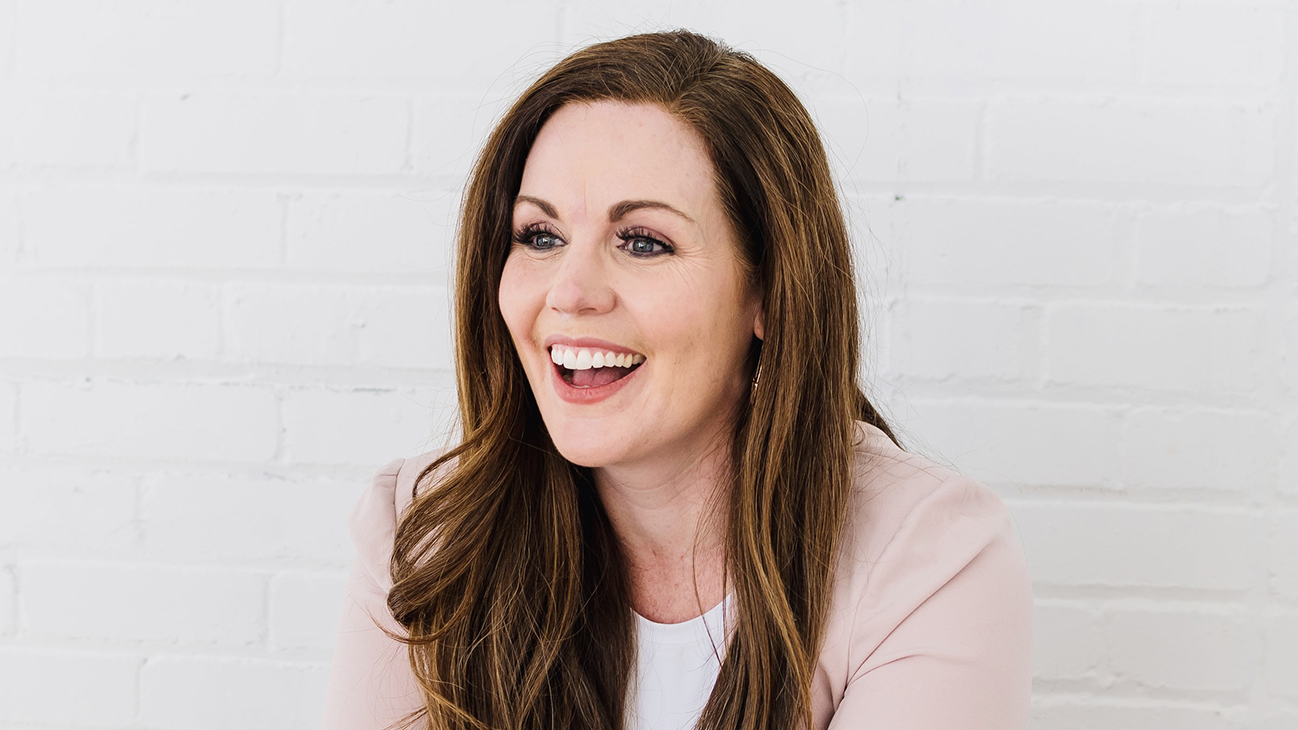Resiliency expert Dr. Robyne Hanley Dafoe says it’s time to change our definition of strength. Too often, Robyne says, strength is defined through toughness, stoicism, being physically strong, and pushing forward no matter what. But, if the last two years have taught us anything, it’s that “pushing through” is not enough.
In a recent article with Fast Company, Robyne explores the misconceptions of strength in our society and why “our understanding of strength needs a reckoning”. The greatest misconception of strength, Robyne says, is that we think strong people are bulletproof — immune to stress, pain, fear, worry, etc.
The reality, Robyne writes, is that our emotions always catch up with us, no matter how fast we run from them. “I see this when working with high performers,” she said. “When they stop, they’re hit with a tsunami of feelings. When you slow down, you feel it all.” And what starts as a whisper, she adds, turns into a battle cry when ignored.
Our nervous system “is quite the equalizer,” Robyne writes. It is an undeveloped system compared to the rate of change that we see in the modern world.
“The pace of life has dramatically increased, and our nervous system is desperately trying to catch up,” Robyne writes. “The problem is that our evolution does not progress at the same rate as our technology. Our whole self is underdeveloped for the tasks at hand, yet… the bar keeps rising.”
Reframing Strength for the Modern World
The pandemic really exposed this fault within our current conception of strength. Those who have been able to cope over these last couple of years are those who have the real super skills needed to take on challenge and change — vulnerability, openness, and being emotionally aware, Robyne writes.
These skills help us co-exist alongside our rapidly changing world with a nervous system that is radically unprepared for the task. In other words, a resilient person. Our new definition of strength, Robyne says, must include resiliency.
“A resilient person recognizes their vulnerabilities and emotions and works with them,” she writes. “A resilient person also understands how being open with others about their challenges is an asset when the sharing is done right.”
Robyne is a multi-award-winning psychology and education instructor who specializes in resiliency. Her research focuses on how we can foster resiliency within ourselves and others. In her work, she has reframed resiliency into a verb, because it isn’t a static state. Resiliency is a set of traits, skills, and behaviours, she writes, that need to be practiced daily to build that solid foundation that allows us to bounce back.
The Five Shared Traits of Resilient People
So, how do we do this? Robyne says there are five traits that resilient people share between them. Cultivating these five areas help build an “ecosystem”, Robyne says, “rooted in safety and trust” that is crucial to helping us show up both physically and psychologically every day. This is the definition of everyday resiliency, she added.
These five key areas are:
1) Belonging
Resilient people have at least one person in their corner that champions and accepts them for exactly who they are, Robyne says, while pushing them when they need it.
2) Perspective
Perspective grows in relation with your lived experience and is the force behind flexible and nimble thinking. “The more you learn, see, seek out, question, and understand, the broader your worldview will be,” Robyne writes.
3) Acceptance
Resilient people don’t wase their energy and resources on things outside of their control because the know their “controllables”. They “don’t ask, Why is this happening to me?’ They ask, ‘What is my next right decision?’” Robyne writes.
4) Hope
Resilient people practice optimism — “come what may,” Robyne writes, “they trust that they will persist.” This self-efficacy reminds them that they can do hard things.
5) Humour
Robyne calls this the “wild card” in her theory of everyday resiliency, but resilient people can find laughter, pleasure, play, and merriment even through the most challenging times.
Of course, there will still be moments when we have to push through, Robyne acknowledges, but what’s important is that you make time and space for recovery because that pushing comes at a cost.
“We need that soulful recognition that we struggle, we have big emotions, we make mistakes, yet we are still capable and competent,” Robyne writes. “It’s understanding that being strong also means having the self-awareness to take care of yourself. And sometimes the strongest thing we can do is ask for help.”
Described as one of the most sought-after, engaging, thought-provoking, and truly transformative international speakers and scholars in her field, Dr. Robyne Hanley-Dafoe provide provides strategies, grounded in global research and case studies, to help foster resiliency within ourselves and others.
Interested in learning more about Robyne and what she can bring to your next event? Email us at [email protected].




